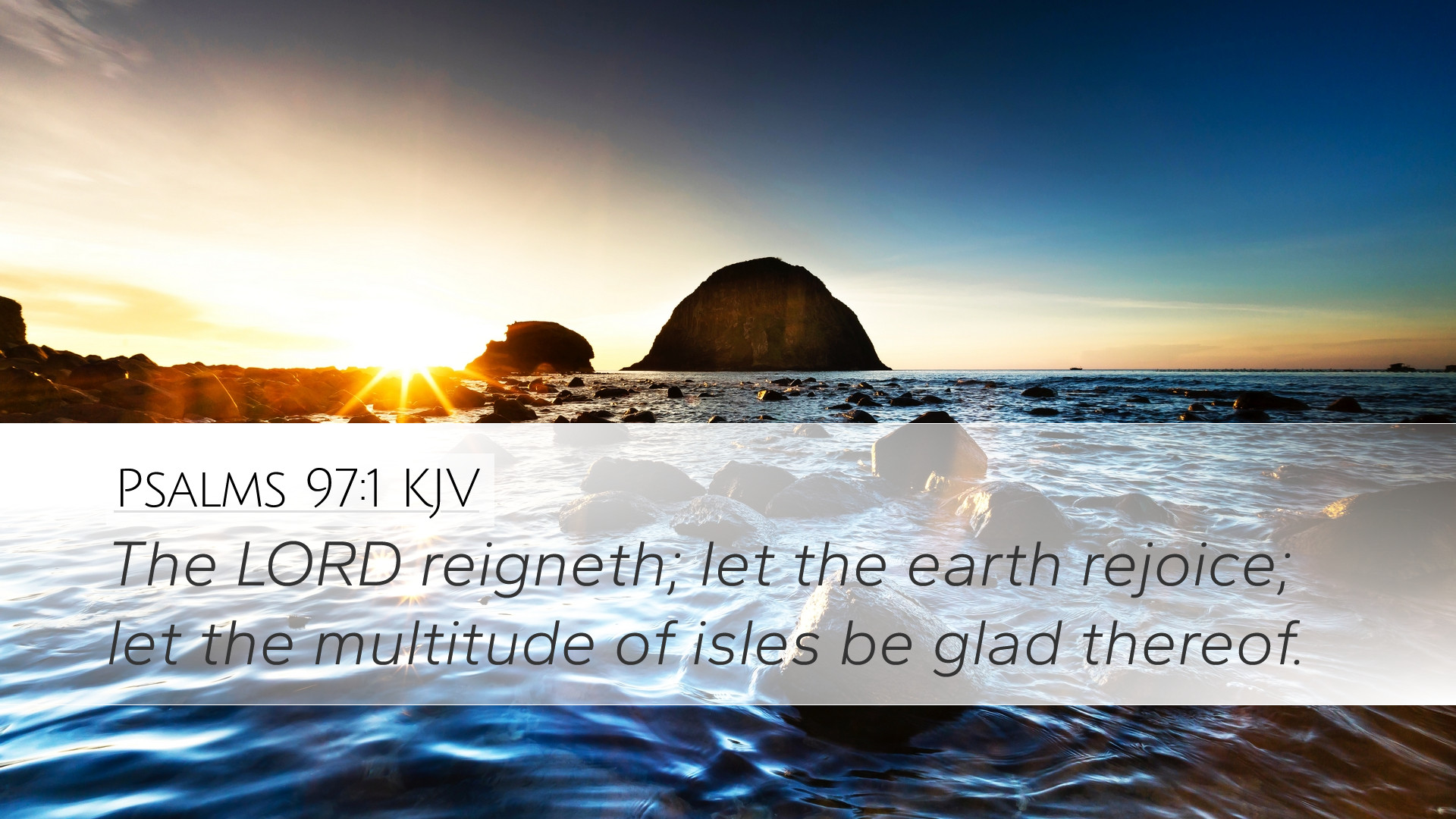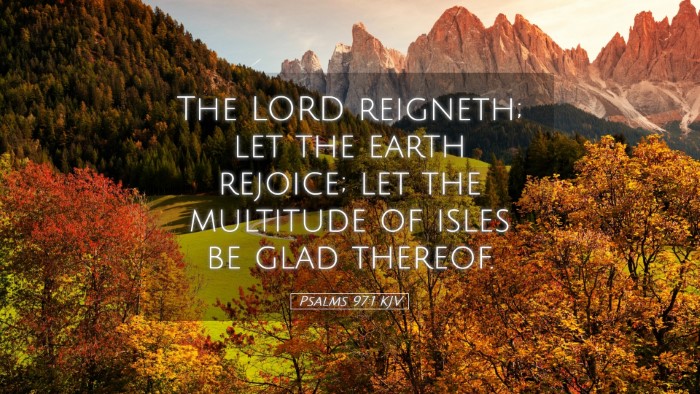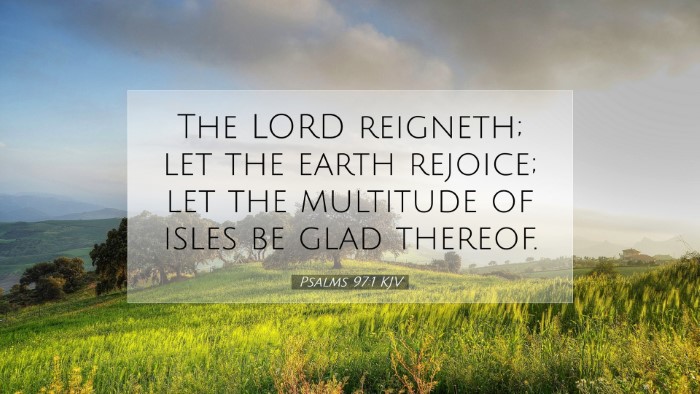Psalms 97:1 - A Commentary
Bible Verse: "The Lord reigneth; let the earth rejoice; let the multitude of isles be glad thereof." (Psalms 97:1)
Introduction
This verse encapsulates a profound truth about the sovereignty of God and His reign over all creation. It serves as a reminder of God's ultimate authority and His active governance in the world. Public domain commentaries, including those from Matthew Henry, Albert Barnes, and Adam Clarke, provide valuable insights into the meaning and implications of this verse.
The Sovereignty of God
Matthew Henry's Commentary: Henry emphasizes that the opening declaration, "The Lord reigneth," affirms the continuous kingship of God over the universe. This reign is not a passive oversight but an active rule that demands acknowledgment and reverence. Every aspect of creation is under His dominion, and thus the appropriate response from humanity is one of joy and worship.
Albert Barnes' Notes: Barnes notes that God's reign is a central theme of the Psalms. This proclamation reassures believers of God's control over the chaos of life. Barnes articulates that the phrase "the earth rejoice" serves as an invitation for all creation to celebrate the righteousness and justice that flow from God's throne. It highlights the dual nature of God's rule—both in mercy and judgment.
Adam Clarke's Commentary: Clarke reinforces the notion that God’s reign is universal and transcends geographical boundaries. He explains that "the multitude of isles" symbolizes all nations and peoples. Clarke elucidates that the call for rejoicing is not limited to the Israelites but extends to every corner of the earth, emphasizing the inclusivity of God's sovereign reign.
The Response of Creation
As the verse moves from God's reign to the earth’s response—"let the earth rejoice"—it signifies an appropriate reaction from those aware of God's kingship.
- Joy in God's Sovereignty: This call to rejoice implies that understanding God’s sovereignty should lead to joy. The acknowledgment that God reigns over all circumstances provides comfort and hope to believers, reminding them that they are not at the mercy of fate or chance.
- Universal Rejoicing: The reference to "the multitude of isles" suggests a broad scope of celebration that includes all nations. Every new understanding of God's character should inspire rejoicing across cultural and geographical boundaries, showcasing a universal recognition of His lordship.
Theological Implications
The declaration of God's kingship brings forth several theological implications that resonate with pastors, students, theologians, and Bible scholars alike.
- The Nature of God’s Kingdom: The phrase suggests a present reality of God’s kingdom that is both here and yet to come. It affirms the belief that God's reign influences current events while promising a future fulfillment where His justice will prevail completely.
- God’s Righteous Judgment: The subsequent verses in the Psalm elaborate on God's righteous judgment. Understanding His reign includes recognizing that He will ultimately set things right. This encourages believers to pursue justice and righteousness throughout their lives.
- Create a Culture of Worship: The response to God's reign compels believers to live a life of worship. This implies that all activities—personal and communal—should reflect the acknowledgment of God's sovereignty, thus prompting a culture that continually praises Him.
Pastoral Applications
For pastors, this verse offers a foundation for preaching about the sovereignty of God and His active involvement in the world. Here are some applications:
- Encouragement in Trials: Pastors can remind congregations that in times of distress and uncertainty, God remains sovereign. This assurance can be a source of comfort for those facing challenges.
- Calls to Worship: Worship services can reflect the majesty of God's reign. Incorporating songs and themes that celebrate His kingship reinforces the message of Psalms 97:1.
- Mission and Evangelism: The global aspect of God's reign calls the church to engage in mission work, spreading the message of His sovereignty and love to every nation and people.
Conclusion
Psalms 97:1 encapsulates a powerful affirmation of God's sovereign reign over the earth. With insights gathered from esteemed public domain commentaries, it becomes evident that this verse invites all of creation to respond with joy and reverence. Understanding the implications of God's kingship cannot only transform individual lives but can also inspire collective worship and action towards justice and righteousness. As believers embrace the truth that "The Lord reigneth," they are called to reflect this truth in their lives, bringing hope to a world in need of the encouragement that comes from knowing the King of kings is indeed in control.


